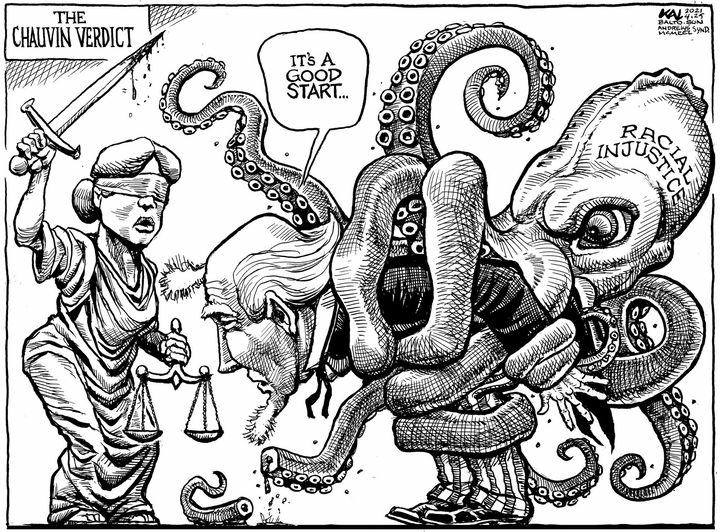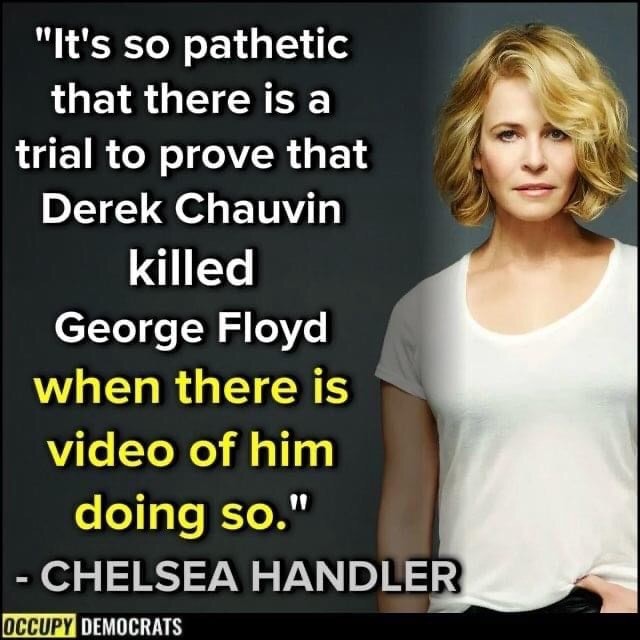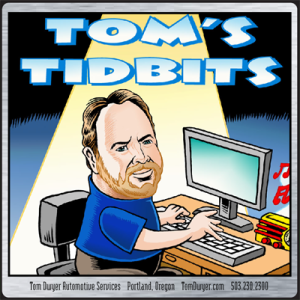Greetings,
George Floyd and Derek Chauvin. There’s so much to learn, so much to say, so many places to take hold of such a pivotal event. Was justice done? The answer could be an emphatic ‘yes’ or tragic ‘no’, depending entirely on where we start.
One man killed another in Minneapolis. That’s a sadly unremarkable event but from the beginning, this case was about much more than a simple, ugly murder. As it played out it seemed to represent everything to everyone, and every illuminating detail only raised more questions.
One man was Black, the other White… did racism play a role? One is a cop, the other accused… did either act within or beyond their roles? One had a history of abuse and misconduct… did that affect his behavior? One had health and drug issues… did that contribute to his death? This certainly wasn’t the first MPD-involved death… is there a pattern? Arresting someone can be violent and ugly… was Chauvin’s behavior legitimate police action gone bad? Police stood by and watched… is this a ‘system’ enabling abuse? Civilians watched as well… did they have either the power or obligation to intervene? Police have ‘qualified immunity’… can a cop be held accountable? The killing galvanized the world and drew powerful political attention… is a fair verdict possible?
Some wondered about the value of a trial at all, and I think we’ve all had the same visceral reaction in cases where people seem obviously guilty. But the answers to questions like the ones above could change the ‘obviousness’ either way. Because we’re a society and not a mob, because law instead of viscera rules us, we take the time to actually answer these questions and prove the accused is as guilty as they seem. A trial is one of our country’s most profound protections for life and liberty, and demanding a fair trial for people like Chauvin helps protect us all.
Fortunately, even the painful or disingenuous questions had clear answers at trial. Did racism play a role? The prosecutors took that off the table by trying Chauvin for his specific actions and never alleged racism at all. Was he a problem cop? Didn’t matter, the jury wasn’t told about his past so they could focus on the killing of Floyd. Did Floyd’s health or drug use matter? Doctor after doctor testified that it didn’t. Was it good policing gone bad? Cop after cop testified that it wasn’t. Questions about the roles of the other three cops were put off until their own trials; questions about systemic culpability will be answered by a new Justice Department investigation. The citizens who watched had no power to stop Chauvin, but 17-year-old Darnella Frazier found the power to hold him accountable. As the world watched the question of a fair verdict was answered, and thankfully the answer was ‘yes’.
 We‘ve learned that systemic issues make it incredibly difficult to hold police or politicians accountable, even for their worst, most inarguable abuses. In spite of that, if Chauvin didn’t commit a crime then it would be wrong to hold him responsible as some ‘sacrifice to the mob’. But he DID commit the crime, and the jury acknowledged it. The joy at the verdict is not mob bloodlust sated, but relief by the vast majority of We The People that our battered justice system actually delivered. IN THIS ONE CASE. Against all the odds. Was that “justice done”? For Derek Chauvin specifically, the answer seems to be ‘yes’. For the deeper issues raised by the case, the answer is a sad ‘no’, justice wasn’t done. But, maybe, just maybe, it started.
We‘ve learned that systemic issues make it incredibly difficult to hold police or politicians accountable, even for their worst, most inarguable abuses. In spite of that, if Chauvin didn’t commit a crime then it would be wrong to hold him responsible as some ‘sacrifice to the mob’. But he DID commit the crime, and the jury acknowledged it. The joy at the verdict is not mob bloodlust sated, but relief by the vast majority of We The People that our battered justice system actually delivered. IN THIS ONE CASE. Against all the odds. Was that “justice done”? For Derek Chauvin specifically, the answer seems to be ‘yes’. For the deeper issues raised by the case, the answer is a sad ‘no’, justice wasn’t done. But, maybe, just maybe, it started.
Make a great day,

Digging Deeper
Why It’s So Rare For Police Officers To Face Legal Consequences, Thomson-DeVeaux, Rakich, and Butchireddgari on FiveThirtyEight, Jun 2020
How Derek Chauvin Became The Rare Police Officer Convicted Of Murder, Mark Berman in Washington Post, Apr 2021
When Police Kill People, They Are Rarely Prosecuted And Hard To Convict, Mark Berman in Washington Post, Apr 2021
Derek Chauvin used force against suspects before George Floyd. The jury won’t hear about 6 of those incidents, Tami Abdollah in USA Today, Apr 2021












